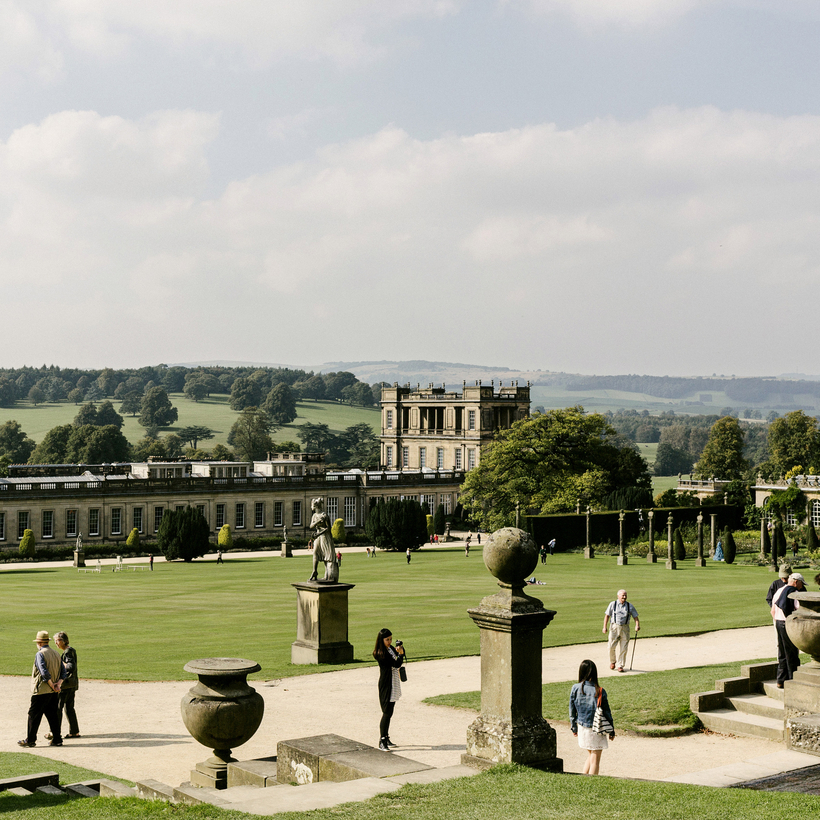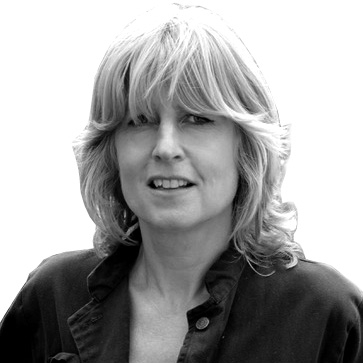You’ve watched Downton (filmed at Highclere Castle, Berkshire); you’ve done at least one season of Bridgerton (filmed at Castle Howard, in Yorkshire); you’ve surely toured a stately home or two and boogied to Blur’s 1995 hit, “Country House,” with its deathless hook, “He lives in a house / A very big house in the country,” too many times to mention.
But now you can study country houses too, which makes perfect sense in a nation where you are defined not by where you are going but by where you have come from, especially if that place happens to be an ancestral seat that rolls over several thousand acres and has a four-poster bed slept in by Elizabeth I.
Yup, you and I can sign up for a master’s in “Country House Studies” at Buckingham University, which means there’s an actual degree in historic houses with ha-has and Hooray Henrys to be had. (What’s the public-school boy’s favorite joke? Knock knock! Who’s there? Eamon. Eamon who? Eamon an Etonian!)

There’s also a course called “The Culture of the English Country House” at Oxford, and a further smorgasbord of “country house” modules at the Universities of Cambridge, Derby, East Anglia, Leicester, Warwick, and York.
The Buckingham course, however, is the bomb. It offers an irresistible peep through the keyhole of the knobbed portal for those curious to learn how the landed aristocracy differ from the merely rich, who are different, as Hemingway reminded us, because they have more money.
When it comes to the landed nobility with their ancestral piles, it’s always been faintly mysterious how on earth they keep the home fires burning, mend the many acres of roof, manicure the parkland, and put bread on the table when none of them have actual jobs.
All these courses and modules, I sensed, were an opportunity to find some answers to these knotty questions. And while the Buckingham course offers “field trips” to houses where the moats are overgrown and the owners overdrawn, it also offers in-person seminars.

These are held at the sort of place you would expect: the Reform Club at 104 Pall Mall. Lecturers include actual earls, such as the historian Charles Spencer (who spoke in March on Althorp, his ancestral seat in West Northamptonshire). The class is followed by dinner, described as “three courses, with wine.”
Well, they had me at “three courses,” but when I turned up at the club where Phileas Fogg made the most notorious bet in the history of travel, I almost didn’t make the cut. “Are you wearing jeans, Madam?” the doorman asked, barring my entrance.
“No, these are casual trousers,” I lied, and legged it, through colonnaded reception areas to a blue-and-gilt library adorned with whiskery portraits of the illuminati, and took my seat at a mahogany table just in time for the last seminar in Country House Studies 2022 to begin.
Opposite me sat the exquisite Julie Montagu, Viscountess Hinchingbrooke to you, in a Liberty lawn shirt and what looked like a hand-knitted tank top and mittens. (She’s from a small town outside Chicago, and, like all Americans, she’s never found an English house that’s too warm.)

Julie is the châtelaine of Mapperton, a Jacobean pile in Dorset. When she met her husband, Luke, she saw his title on his credit card and had to ask him what it meant. She thought “viscount” rhymed with “discount,” but, Reader, she married the future 12th Earl of Sandwich within the year.
On my left was a sensitive young man who looked after the Turners—the paintings, not some ancient craftworkers—at Petworth, and the course tutor was Adrian Tinniswood, social historian and best-selling author of, most recently, a sparkling history of the fall and rise of the postwar country house called Noble Ambitions.
She thought “viscount” rhymed with “discount,” but, Reader, she married the future 12th Earl of Sandwich within the year.
I can with all honesty say I have never had a more fascinating evening. To boil it down: before the end of the war in 1945, it was considered vulgar to open your house to the public for anything but charity. But steepling postwar death duties and super-tax to pay for peace and the N.H.S. put an end to that, and gave birth to the stately-home industry.
Aristos, whose forebears had spent generations trying to keep the public out, now bent over backward trying to persuade them to pay to come in.
Lions, pop concerts, property rentals for films, TV series, pop videos, vintage cars, cafés, tours of the house, farm shops, country centers, riding centers, yet more lions—the Duke of Argyll even licensed his title to promote a range of woolen socks—any and every “ancillary attraction” was tried, and many of us have experienced and enjoyed them.

I, for one, have slept in the stripy red, white, and black bedroom in Castle Howard, decorated by Anouska Hempel, pimped out to the Bridgerton series, and inevitably known as the “sex suite.”
Such noble efforts to maintain these grand properties continue unabated to this day. There is still a safari park outside Bath two years after the death of the “Loins” of Longleat, Alexander Thynn, the seventh Marquess of Bath. Nick Howard, who runs Castle Howard, is preparing the south front of the castle to host Duran Duran and the Chemical Brothers on two enchanted evenings this coming June. Julie Montagu, my classmate, presents a series on YouTube called American Viscountess.
All those who have inherited or live in a heritage property are driven by the consuming anxiety of the 11th Duke of Devonshire in the 1950s, who said, as he gazed at Chatsworth: “I don’t want to be the one to let it go.” As a part-time student of country-house studies and full-time pleb, I can only admire their continuing and selfless struggle.
Rachel Johnson is a journalist and author. Her books include The Mummy Diaries, Notting Hell, and Rake’s Progress: The Madcap True Tale of My Political Midlife Crisis


